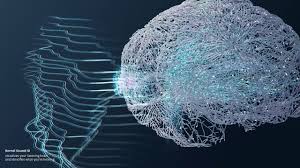
Breaking News
 Which party represents Americans?
Which party represents Americans?
 Even The Best AI Scenario Is The End Of Everything We've Ever Been
Even The Best AI Scenario Is The End Of Everything We've Ever Been
 In Simulated War Games, Top AI Models Recommended Using Nukes 95% Of The Time
In Simulated War Games, Top AI Models Recommended Using Nukes 95% Of The Time
 Rising Cancer Rates, the Globalist Agenda, and the Big Business Land Grab Making You Poor
Rising Cancer Rates, the Globalist Agenda, and the Big Business Land Grab Making You Poor
Top Tech News
 New Spray-on Powder Instantly Seals Life-Threatening Wounds in Battle or During Disasters
New Spray-on Powder Instantly Seals Life-Threatening Wounds in Battle or During Disasters
 AI-enhanced stethoscope excels at listening to our hearts
AI-enhanced stethoscope excels at listening to our hearts
 Flame-treated sunscreen keeps the zinc but cuts the smeary white look
Flame-treated sunscreen keeps the zinc but cuts the smeary white look
 Display hub adds three more screens powered through single USB port
Display hub adds three more screens powered through single USB port
 We Finally Know How Fast The Tesla Semi Will Charge: Very, Very Fast
We Finally Know How Fast The Tesla Semi Will Charge: Very, Very Fast
 Drone-launching underwater drone hitches a ride on ship and sub hulls
Drone-launching underwater drone hitches a ride on ship and sub hulls
 Humanoid Robots Get "Brains" As Dual-Use Fears Mount
Humanoid Robots Get "Brains" As Dual-Use Fears Mount
 SpaceX Authorized to Increase High Speed Internet Download Speeds 5X Through 2026
SpaceX Authorized to Increase High Speed Internet Download Speeds 5X Through 2026
 Space AI is the Key to the Technological Singularity
Space AI is the Key to the Technological Singularity
 Velocitor X-1 eVTOL could be beating the traffic in just a year
Velocitor X-1 eVTOL could be beating the traffic in just a year
A Neuroscience Startup Uses Helmets to Measure Brain Activity

Either way, true insights are hard to come by, and for now, the quest to know thyself remains as elusive as ever.
Kernel, a startup based in Culver City, Calif., says it aims to transform brain science from an esoteric art to a big business. It's found a way to shrink the machines used by researchers and make them cheaper. In an interview with Bloomberg Businessweek, Kernel unveiled for the first time a pair of devices—basically helmets—that can see and record brain activity, enabling scientists to more easily analyze neurons as they fire and reveal more about how the mind works. "This triggers a new era of access to the mind and the ability to ask all sorts of new questions about ourselves," says Bryan Johnson, the company's founder and chief executive officer. (Kernel will not reveal the helmets to the public until later this year.)



